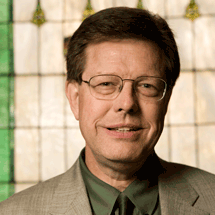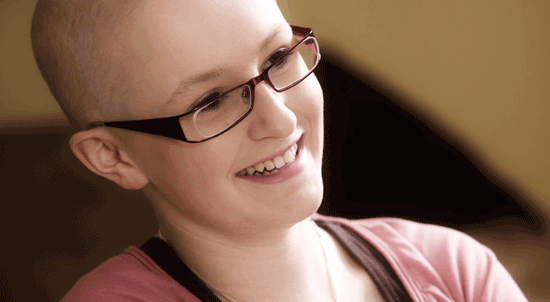 |
intersect
The Voice of Those Who Weep: Christians and Chronic Illness, Part One
INTERSECT (Where the Bible Meets Life) is a regular column of ONE Magazine featuring Dr. Garnett Reid, a member of the Bible faculty at Free Will Baptist Bible College. Email Garnett greid@fwbbc.edu |
Chronic illness sufferers know all too well what Job meant (Job 7:3-4; 30:16-17, 29, 31). Nights and months of wrenching pain and lonely despair meet frequently only with skeptical looks and callous remarks.
Off the Radar Screen
Make no mistake, though. The anguish is real for those with ongoing illnesses that never seem to loosen their chokehold. The Centers for Disease Control define a “chronic illness” as one that is “prolonged, does not resolve spontaneously, and is rarely cured completely.” Those who love and care for these brave people feel that cruel grip, too. All too often the church fails to reach out with Christ’s heart to touch the lives of the chronically ill and their caregivers with His compassionate embrace.
That’s strange since the need slaps us in the face. Almost one-half of all Americans live with a chronic illness, accounting for three-fourths of our spending on health care. Those statistics fade to the margins, though, when it’s you or your loved one who hears the diagnosis and starts down that long road of managing a debilitating disease.

That was my experience. End-stage renal failure meant day after day of peritoneal dialysis for me, with bags of solutions, transfer sets, cyclers, rubber gloves, and surgical masks. I well remember a trip my wife Carol and I took to the spectacular Broadmoor Resort in Colorado Springs—along with my cycler, bags, gloves, and all.
On that same trip we heard Jeff Boyd’s presentation, “A Biblical Theology of Chronic Illness.” Though his remarks were helpful, what struck me most was that Christians don’t fit that piece of our lives into our biblical worldview very well. But we really should grapple with the place of chronic illness in our belief system since millions of Christians—your loved ones and mine—suffer. And our beliefs fuel our actions.
On the Road to Dying
My purpose in this series is to sketch lightly what the Bible says about the reason for chronic illness, as well as a rationale for serving those who suffer. In the next column, I’ll share more words with people who care for those who hurt.
Like all disease, chronic illness ravages the human family because of sin. Adam’s disloyalty to God passed along to every person the consequence of death and all that leads to it. Job’s experience, however, shows us that such a thing as innocent suffering exists. That is, some ailments and hardships come our way not because of any particular thing we’ve done wrong; instead, God permits them in order to work out His purpose, which ultimately is a good purpose.
Remember Paul’s “thorn in the flesh”. That difficulty—probably a physical problem—plagued him not because he had committed sin but to keep him from sinning (2 Corinthians 12:7) and to give God occasion to flood Paul’s life with grace.
So, too, the blind man in John 9 was not a victim of a particular sin but a vessel through whom God would reveal His glory (John 9:3).
Move the Stars
We should not be surprised, therefore, to see that Jesus spent much of His time on earth touching the lives of hurting people. He loved and healed the paralyzed, lepers, those who couldn’t see, speak, or hear, and the lame. He taught His followers to love those who suffer (Luke 14:12-14). After all, “God is love,” John reminds us (1 John 4:8), and those who love God will love others. Paul commands us to “walk in love”—that is, a life filled with love because Christ has loved us (Ephesians 5:1).
This love is not just talk and hype, either. It has hands and legs and feet. We don’t really love, John suggests, if we just mouth words about love and neglect to practice love (1 John 3:16-18). Love is a verb as well as a noun! James went so far as to say that the real stuff of “religion” is to go where needy people are—to be with them, not just to text them or email them. Go and sit with them and cook for them and talk to them and run errands for them.
Virginia Owens wrote of the experience of caring for her mother during a seven-year illness that eventually claimed her life. Reflecting on what she had learned, Ms. Owens concludes:
Only this: loving people is such a burden. If love, in and of itself, weren’t the center from which life flows, if it didn’t, as Dante says, move the stars, how could we bear such weight? Nevertheless, love is also all that endures.…but in the end, love is a choice.
Next Intersect: Words to you who choose to love those who hurt
|

